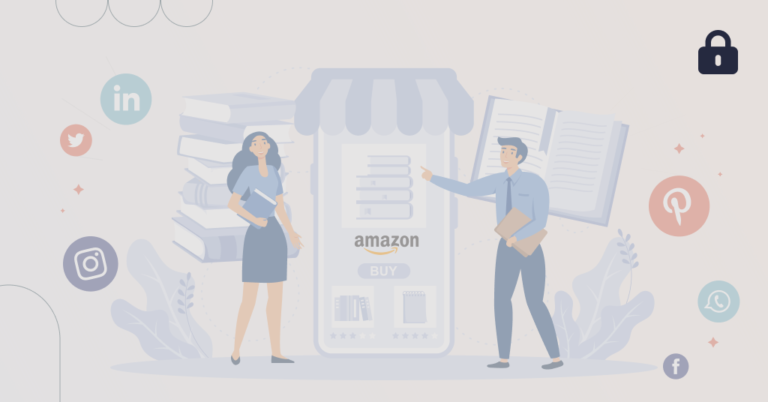Expanding the number of readers is one of the major challenges self-published writers face. It requires plenty of time and effort. If you want to know what are the best ways to get the first readers, you are in the right place.
We’ve asked 10 experts in self-publishing and book marketing to share one most effective method of getting first readers and building the audience for indie authors.
- Brooke Warner
- Anne R. Allen
- Shayla Raquel
- C.S. Lakin
- Kate Tilton
- John Kremer
- Belinda Pollard
- Derek Murphy
- Laurence O’Bryan
- Dave Chesson
Ready to read their insights?
Brooke Warner
As an indie publisher of some 100 titles per year, I see authors who have the most success when they start with their existing communities and ripple out from there. Promoting a book is hard work, so starting with who you know matters. When you’re a new author, you need to pull in your favors.
Ask your friends and community for support in spreading the word. Grassroots efforts go a long way in laying an effective foundation for bigger, more reverberating efforts.
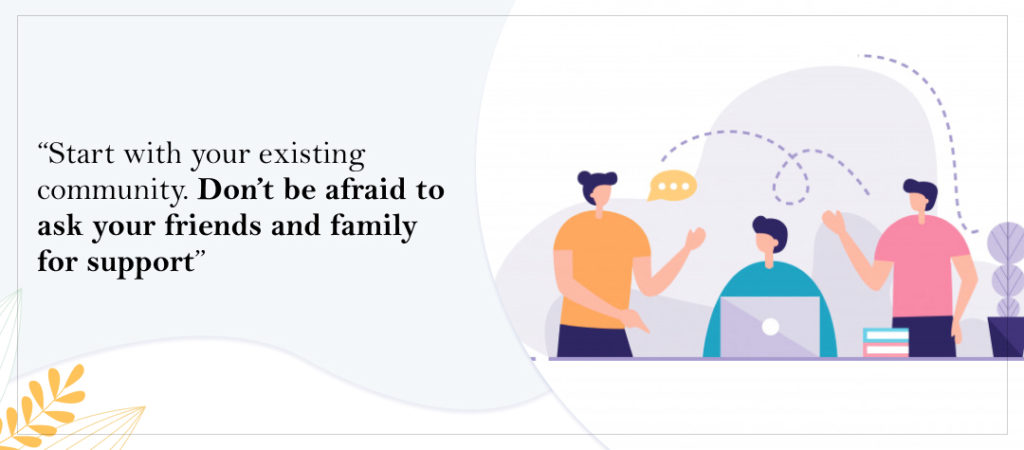
Social media is an obvious and daily place to start. Guest post for bloggers who cater to readers who might like your book. The key to getting yourself out in a big way is a generosity of spirit, and of content. Write a lot. Post often. And remember to give and compliment as often as you take, and ask for compliments.
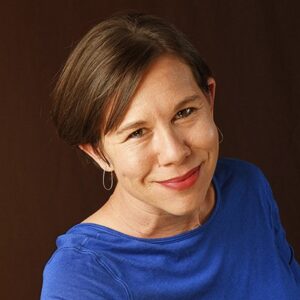
Brooke Warner is an author of three solo books about writing and publishing. She builds the community where authors find inspiration and cope with difficulties in self-publishing. Brooke also runs a course “Write Your Memoir in Six Months” co-founded with Linda Joy Myers.
Anne R. Allen
An author blog is still an excellent marketing tool.
People will tell you that blogging is dead, but they’re talking about monetized get-rich-quick business blogs, not author blogs. A blog is still well worth the investment of an author’s time—especially for a new author.
An active blog gets way more traffic than a static website and Google ranks websites by activity level and links. When Google likes you, you become visible to the rest of the world.
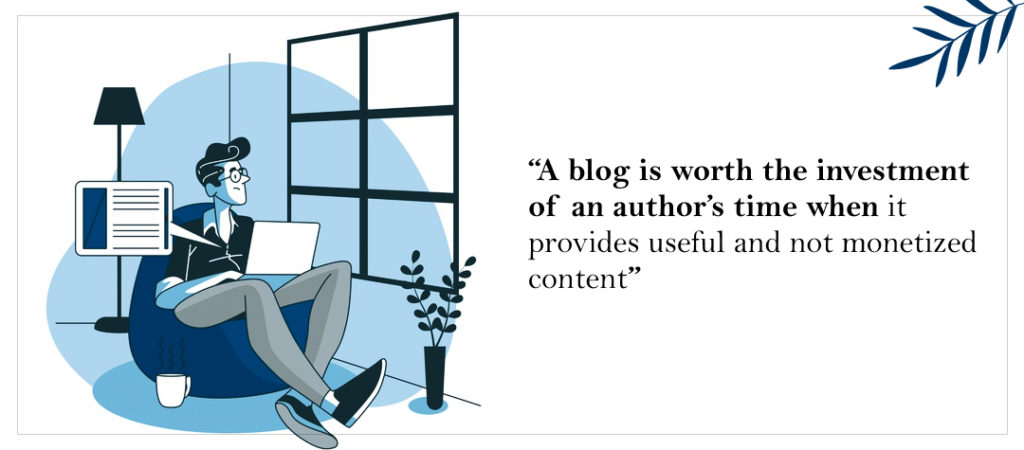
Unlike a newsletter, a blog isn’t a closed system. You are always attracting new readers, instead of writing for people who already have your book. It’s not that you want to hard-sell your work to everybody who wanders by. But blog readers can become friends and important contacts who can introduce you to corners of the Internet you might never have discovered.
A blog is also a great way to network with other authors. Multi-author marketing events almost always bring excellent returns. And best of all, blogging can introduce you to agents, editors, writers’ conference directors, and other professionals who’ll make all the difference in your career.

Anne R. Allen is the author of ten comic novels such as The Gatsby Game, Food of Love, and The Lady of the Lakewood Dinner and the hilarious Camilla Randall mysterie. Anne’s blog helps authors with loads of useful tips on how to succeed in writing and book promotion, and it was named one of the Best 101 Websites for Writers by Writer’s Digest.
Shayla Raquel
Your author brand is how and why readers fall in love with you and decide to read your book. In plain and simple terms, you are the brand, and your book is the product.
Without understanding this concept, you will always have a difficult time attracting readers—and keeping them.
Author branding is your reputation, your passions, your message, your theme (or aesthetic), and your image all rolled into one with a primary goal: to make a living as an author. When authors come to me and say, “I want you to help me build my author brand,” what they’re really saying is, “I want to sell books to voracious readers, and I don’t know how to find them.”
Before you spend money on a website, before you start with Facebook ads, and certainly before you start writing that author bio, you need to get this down: I am an author.
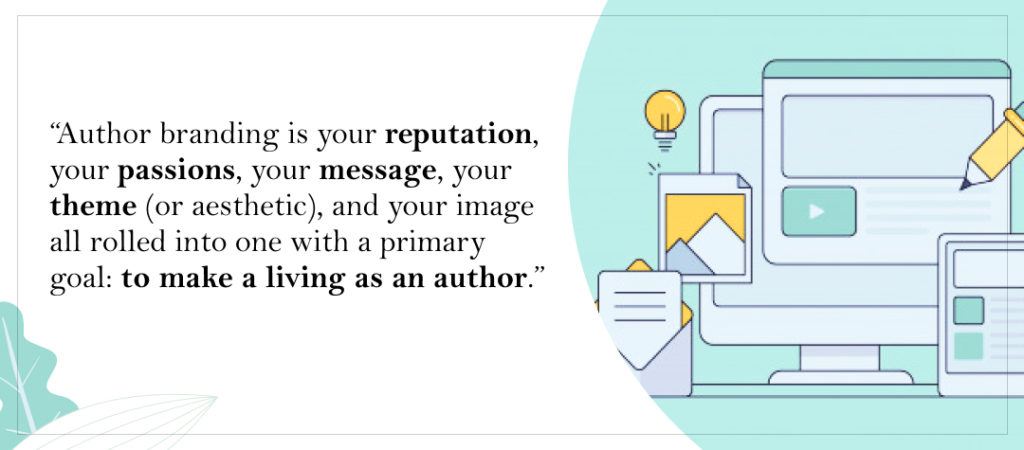
Once you’ve established that you’re really and truly an author, then you need to ask the following questions to help you establish your author brand:
• What is your author brand all about?
• Who are you—really?
• What is it about you that makes me want to hear from you every day?
• Why should I come to your website? Will I be educated? Entertained? Encouraged?
• Why should I follow you on social media?
• Why will I love your book?
Yes, being an author is quite the little business, isn’t it? But it doesn’t mean I, as the reader, should feel as if a robot is communicating with me. You have to be authentic to build a strong foundation as an author.
It’s all about being genuine and honest in your online activity. Your personal brand needs a recognizable voice that sets you apart from others in the same niche.
Remember this phrase: know thyself.
Whoever you are in real life is who you are online. Period. If you use slang in conversation, then use it in your blog, on Instagram, or during a video. If you have an accent, then let it flow, y’all. If you are obsessed with sloths like my friend Janey Merry (who wrote a children’s book featuring a sloth), then by George, talk about sloths.
Be. Yourself.
Do not under any circumstances try to act like someone else when branding yourself. Simply be passionate about what you love, and the rest will follow.

Shayla Raquel works one-on-one with authors and business owners every day as an expert editor, best-selling author, and book marketer. A lifelong lover of books, she has edited over 400 books and has launched several Amazon bestsellers for her clients. She is the author of the Pre-Publishing Checklist, “The Rotting” (in Shivers in the Night), The Suicide Tree, and The 10 Commandments of Author Branding.
C. S. Lakin
The best way to grow a mailing list is to give away free books. You can write a short one, a novella or a tight-focused nonfiction book. Use the book as a lead magnet (to capture email addresses for your list) on your blog or website, in guest blog posts, and on social media. Make sure it’s high quality in content and appearance.
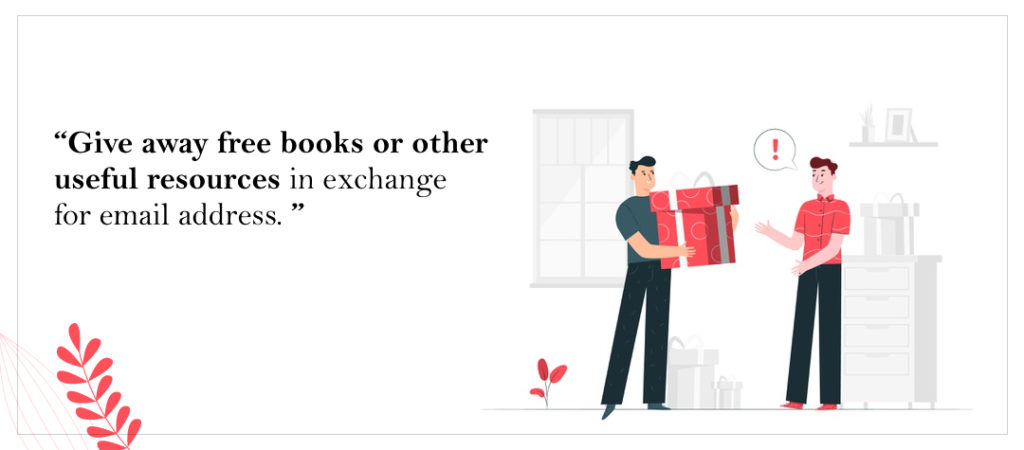
You’ll gain true fans who love your writing by way of checking out a free book they wouldn’t have known about or purchased.
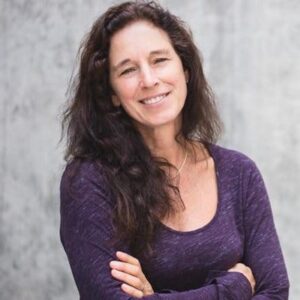
C. S. Lakin is an award-winning author and blogger at The Self Publisher. She has written twenty novels and ten writing crafts books and works full-time as a copyeditor and writing coach. Susanne works with writers from all over the world. Her website gathers the experience of ups and downs and teaches how to make income from writing.
Kate Tilton
There are two steps to building an audience: defining and engaging the target audience. Most articles on author marketing address the second step, so here are my tips for step number one.
Start clarifying your target audience by describing your ideal reader. The most vital part of any marketing effort is having a clear picture of who you’re trying to reach. It makes everything you do in marketing easier and more effective. There is no one-method-fits-all, but there are steps to find the methods that will work best for you. By knowing your audience, you can focus your resources (time and money) to achieve the best results (sales).
To understand your ideal reader, build a basic profile of these demographics and narrow them down further as you research: age, gender, location, education, profession, income, group affiliations, hobbies, and lifestyles. For example, instead of picking “females of any age,” you can narrow that to “female baby boomers.” Instead of “any education level,” you could choose “college-educated.”
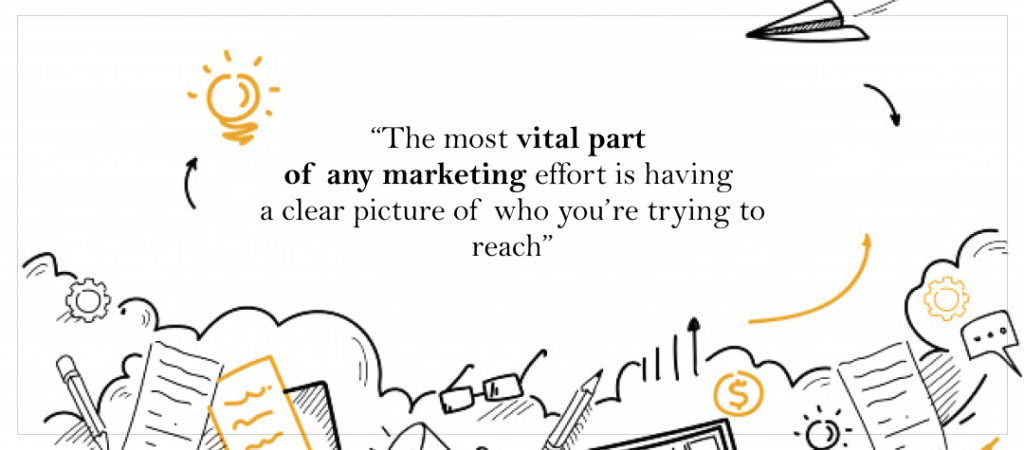
One excellent way to gather research on readers to better develop your picture of this number one reader is to look at authors who have books similar to yours, who can be identified through “also-bought” and top 100 genre rankings lists on sites such as Amazon. Who engages with those authors? Are there any patterns you see? On the authors’ Twitter feeds and Facebook pages, you might see commonalities among the highly engaged readers.
Use these questions to make the picture of your ideal reader even sharper:
• What does a typical day look like for your reader?
• What challenges does your reader face? (Do they struggle to set aside time to read because of their job or family obligations? Do they struggle to find books they enjoy because they don’t use the Internet or technology?)
• What does your reader want in life, and what things beyond books does your reader enjoy? How does your book tie into those interests?
• Where does your reader discover new books? (Library, a chain bookstore, indie bookstore, online retailer, e-reader device, email list, etc.)
• What format does your reader prefer? (Hardcover, paperback, Kindle, Nook, iPad, etc.)
The more clarity you gain in this first step, the easier it will be to grow your audience!
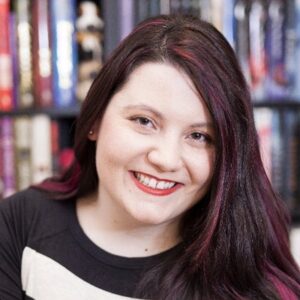
Kate Tilton is a founder of Kate Tilton’s Author Services, LLC, which assists writers to reach their goals and connect with readers. By standing beside authors as a partner, Kate supports them to expand the audience and cope with hurdles in marketing.
John Kremer
One of the best ways to find new readers is to ask your friends for help. It’s the simplest and working way because they can share what you write with their friends and social fans. I reveal more ideas in my post 51 Ways to Help a Book Author You Love. You don’t have to use all the suggestions, but some of them can support the growth of your audience.
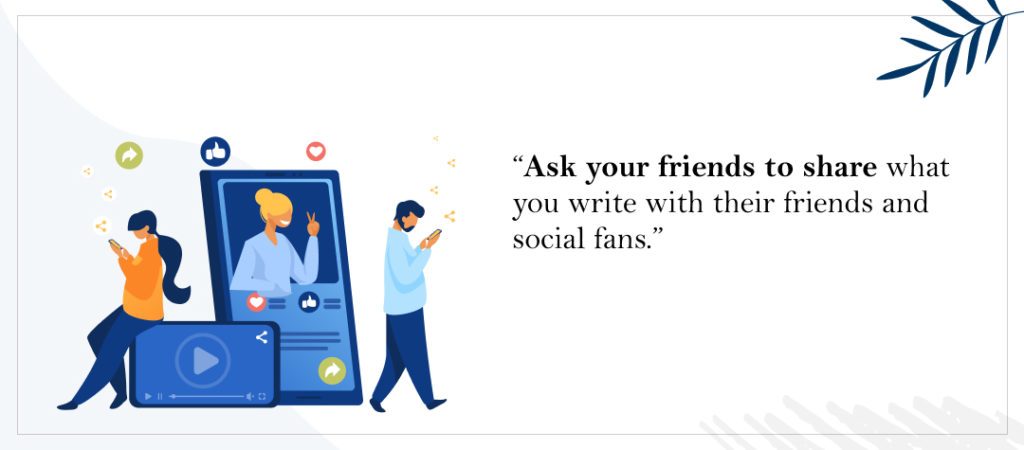
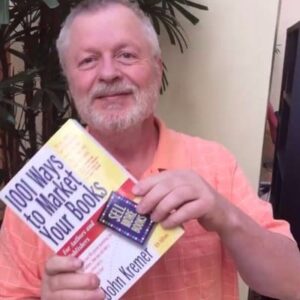
John Kremer is a book marketing expert and author of “1001 Ways to Market Your Books.” He is a founder of the Billion Book Initiative, which helps the next generation of book authors sell another billion books. John gives book marketing tips or other information on writing, publishing, and marketing books, ebooks, or other information products.
Belinda Pollard
Online marketing is so important, but I also want to add these two tips.
#1 Don’t overlook the value of direct paperback sales connected to speaking opportunities or an influential role you already have. Such sales have formed the core for my clients whose books have earned in the tens or hundreds of thousands of dollars.
This is obviously a stronger effect for non-fiction books related to an author’s role as an influencer. However, even for fiction, I’ve seen books pay off their publishing costs via face-to-face sales connected to speaking opportunities at libraries and elsewhere.
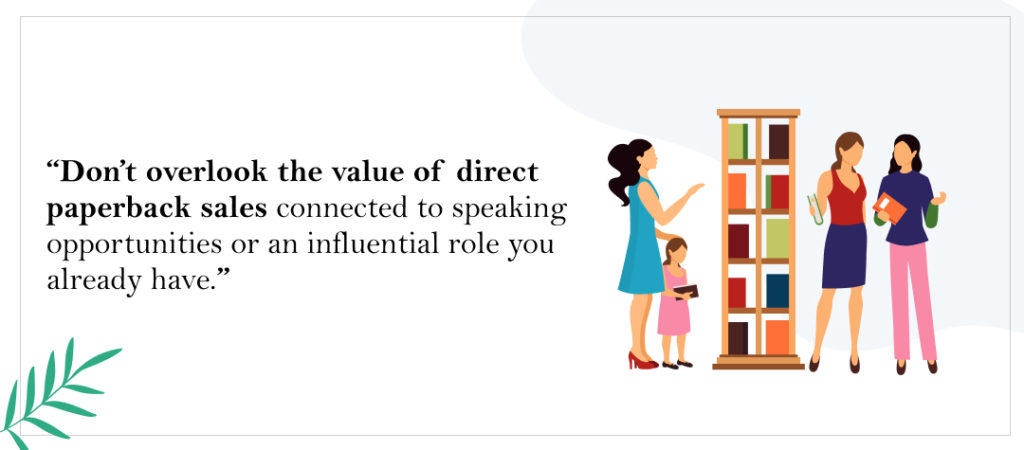
#2 Don’t overlook your existing networks. Family and friends will be excited about your book and want to support you in every way they can, by buying up copies to give as gifts and praising your book to all their friends.
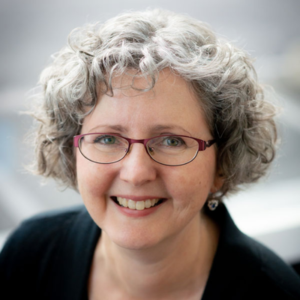
Belinda Pollard is a multi-award-winning author, publishing consultant, and accredited book editor based in Brisbane, Australia. She blogs writing and publishing tips on her website The Small Blue Dog.
Derek Murphy
The main challenge for authors is getting people to pay for a book from someone they’ve never heard of. It’s possible, but everything must be perfect (blurb, cover, reviews) before someone is going to take a chance on you. That’s why free books can work so well – even a short story or prequel that readers can pick up for free, get to know the writer and get hooked by the story.
Once you’ve begun forming a relationship with readers (get them on your email list, start providing value) and get them to read some actual writing (not sales copy or description, the actual writing itself) getting them to pay for a full book is going to get easier and easier.
However, sometimes it’s hard to even get them to download something for free. You have to get it in front of them and make them want it (two very separate things, visibility + conversion).
I’ve found it can be easier to run giveaways with Kingsumo featuring well-known books or new releases from authors my target audience is already familiar with. They already want those books and recognize the value, so signing up to win is an easy proposition.
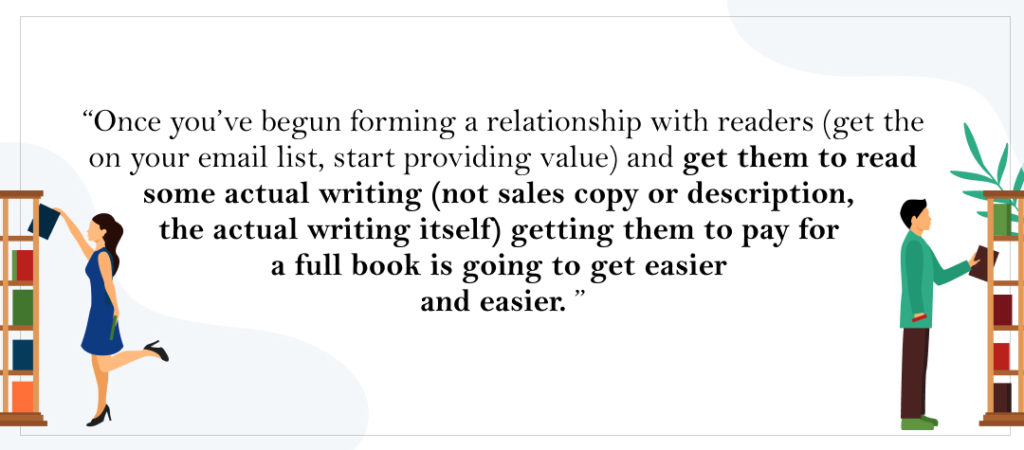
Once they sign up, you can offer a free book instead as a consolation prize. If you’ve set up the giveaway well and only chosen very similar books from the one you’re trying to promote, people who signed up should already be interested in the kind of writing you’re trying to promote.
Depending on the size of the list, you could offer 100 ARC copies, first come first serve, and a 99cent deal or something to everyone else. Even so, a free or discounted book on its own still needs to be validated with great cover, reviews, and a killer blurb.

Derek Murphy teaches creative people how to start profitable freelance businesses, produce and sell their best work. He shares a lot of free content, tutorials and tools. Also, Derek tries to help authors find their own version of creative independence.
Laurence O’Bryan
The year 2020 heralds a new decade and an era of real opportunity for self-published authors.
A growing professionalism in all aspects of self-publishing from editing, through cover design to marketing. The range of services available to self-published authors has blossomed in the past few years. In every area, you can find competition leading to better pricing and improved quality.
Sophisticated tools, which allow authors to quality check their writing, test their covers and manuscripts on genre readers, find honest reviewers, and remarket to readers who previously expressed an interest in their work.
Jeff Bezos told us in 2018 that Amazon paid over 1,000 authors $100,000 a year. This number is likely to be rising.
There are thousands of self-published authors writing to market, writing fast and supporting each other in communities focused on NaNoWriMo and every genre imaginable. For many writers, all that matters is, “can you sell my book?”
But that question often gets turned on its head these days into: “Is your book ready to be sold?”
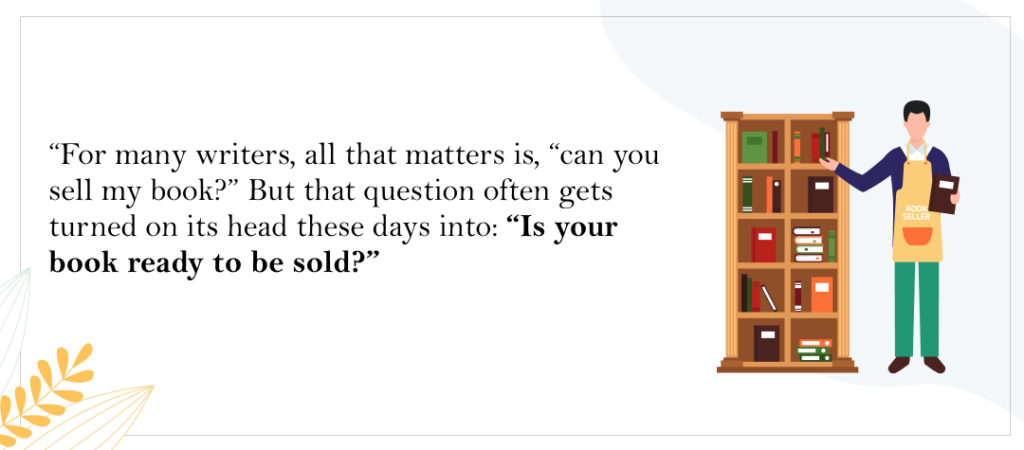
Authors can be impatient, I know what that’s like. We want to jump forward and it’s understandable, but there are hurdles in which every self-published author must get their book to jump before expecting it to sell.
These include:
- A professional, genre-appropriate cover. Don’t expect to sell books with poor covers.
- No positive reader reviews on Amazon will kill your chance of selling books stone dead.
- A compelling book description. This area requires detailed attention.
If you skimp on any of these and expect book marketing to help your sales, it won’t.

Laurence O’Bryan is a published author dedicated to the promotion of other authors. He won the Outstanding Novel Submitted award at the Southern California writer’s conference. Laurence is a committee member of the Irish Writing Union and a founder of the Dublin Writers Conference.
Dave Chesson
Convincing Amazon to show your book to the right readers is the best strategy for finding first-time readers. You can either do this by paying Amazon to put your books to the top of the search results through their Amazon Ads system, or by strategically picking the right keywords for your book.
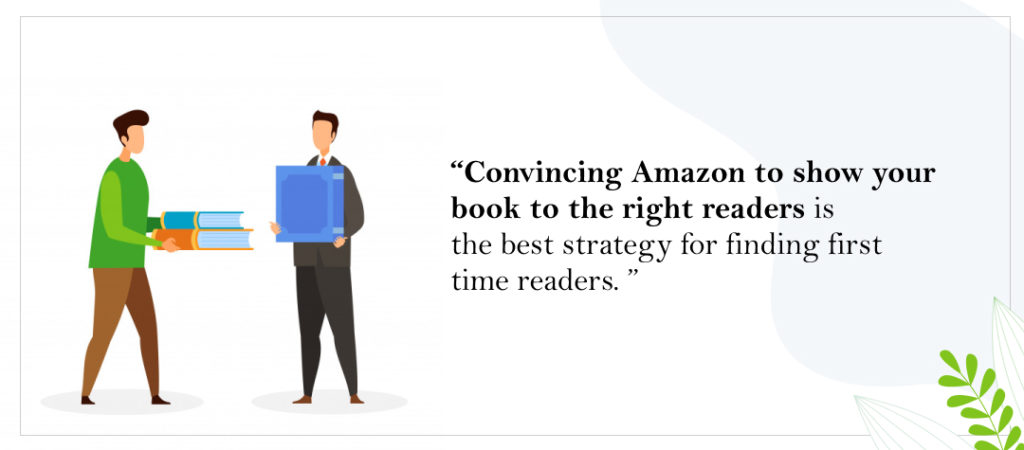

Dave Chesson is a founder of the website Kindelpreneur.com. It’s a software for authors where they can learn about picking right keywords and categories to promote more books on Kindle. Dave’s tactics help both fiction and nonfiction writers of all levels get their books discovered by the right readers.
Summing Up
I hope, you’ve found some really great ideas on how to enlarge your audience and ready to implement them right away.
What strategies do you use to engage new readers? Share your insights in the comments.



